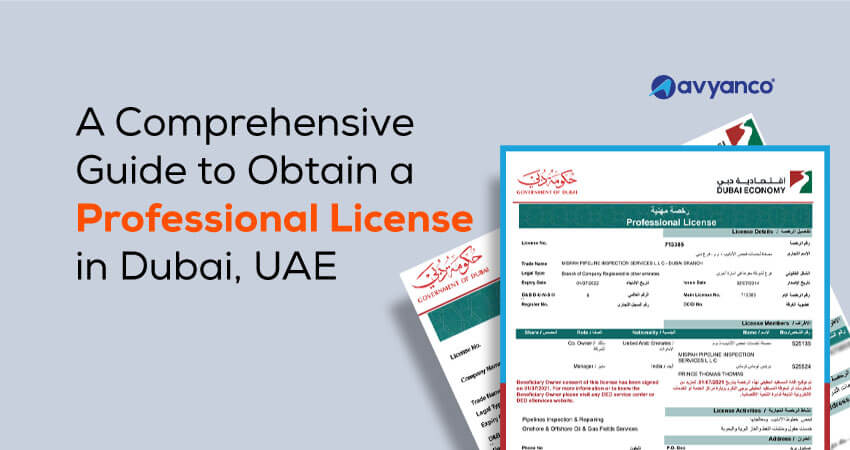In 2023, there will be new tax laws to comply with, like the Corporate Tax in UAE. So it’s important to start figuring out how to make sure you’re following all the regulations. The UAE’s new Corporate Tax law is like the best practices and standards used around the world. It’s also called “corporate income tax”.
The idea behind it is to boost the country’s corporate presence and attract more foreign investments. It’s all official now, and anyone who’s subject to the tax needs to get a registration number for it.
Want to know what’s in it for businesses in the context of the UAE Corporate Tax Law? So, what are you waiting for? Continue reading and explore here everything you need to know about corporate tax in UAE.
What is Corporate Tax in UAE?
Corporate Tax (CT) is a tax that businesses pay on their profits. From June 1, 2023, all companies in the UAE will have to pay corporate tax in UAE. It applies to businesses that are residents or non-residents in the UAE.
Reasons for Introducing Corporate Tax in UAE
The recent tax changes in the UAE are trying to attract more foreign investment. However, the UAE is still a great place for businesses regarding taxes. It just requires businesses to stay on top of the new rules and regulations.
One of the big reasons they’re bringing in corporate tax in Dubai is to make things more transparent. It’s also supposed to be good news for businesses, giving them a friendlier environment to operate in. And, of course, it’s all about making sure the business scene stays positive and healthy.
There are other reasons for having corporate tax introduced in UAE. For instance, to ensure that the country is following the same rules as everyone else. Plus, it’ll help the government track people who try to avoid paying their taxes.
The new corporate tax will help businesses with their finances and contribute to the development of the country. It will also help the UAE stay a global economic hub.
When Will The UAE Corporate Tax Dubai Become Effective?
The Corporate tax in UAE for 2023 will become effective for financial years starting on or after 1 June 2023.
For instance:
- A business with a fiscal year beginning on July 1, 2023, and ending on June 30, 2024, will be subject to UAE Corporate Tax starting from July 1, 2023. It marks the start of the first fiscal year commencing on or after June 1, 2023.
- Similarly, a business with a fiscal year starting on January 1, 2023. And ending on December 31, 2023, will be subject to UAE Corporate Tax from January 1, 2024. It is the beginning of the first financial year starting on or after June 1, 2023.
What Is the UAE Corporate Tax Rate?
If a business earns up to AED 375,000, it won’t have to pay any taxes. But if they make more than that, they’ll have to pay a 9% Dubai corporate tax rate. And if they’re a big multinational business, their tax rate might depend on what kind of business they do and other factors.
Calculating Taxable Income
How much tax you have to pay and how much money you take home from your business depends on how much profit you make. But if your business loses money, you can use that loss to lower your taxes up to 75% in future years.
Getting advice from a business and tax advisor like Avyanco is a good idea. They can help you with business tax in Dubai and guide you to make smart financial choices.
How Corporate Tax will Benefit the UAE economy?
The UAE diversified its economy and is now successful in tourism, real estate, finance, construction, and technology. It has the second-largest economy in the Middle East, valued at $415 billion.
The UAE will implement a new corporate tax regime starting June 1, 2023, after not having a federal corporate income tax for a long time.
UAE Introduces Corporate Tax and Boosts Support for Small Businesses to Diversify Economy
The UAE is introducing a corporate tax to reduce reliance on oil revenues and fund projects beyond the energy industry, which will help diversify the economy.
Investing more in infrastructure projects, like transportation, water and electricity supply, and telecommunications, can help the government. It boosts the economy and creates new opportunities for overseas investment.
Impact of Corporate Tax on Businesses
The government is going to use the money it gets from corporate taxes to help out small and medium businesses. They’re going to invest more in programs like Dubai’s Future Accelerators and Abu Dhabi’s Hub 71. It is to give startups and early-stage companies the boost they need to make it big.
Small businesses in the UAE need all the help they can get to grow and thrive. That’s why it’s so great that they’ll have access to things like funding, mentorship, and networking opportunities. With these resources, entrepreneurs will be able to really make their mark and succeed in their ventures.
The UAE offers great support to new businesses and is located between major markets in the East and West. This makes it a competitive and attractive base for businesses, encouraging economic growth and international expansion.
According to Younis Haji Al Khouri, who works for the Ministry of Finance, the UAE is really serious about making sure that everyone, whether they’re from here or not, can invest without getting bogged down in a bunch of complicated tax rules.
Basically, they’ve made the Corporate Tax system way simpler, which is great news for small businesses, startups, and the whole economy. It’s just one more way the UAE helps businesses reduce tax liabilities and allows people to grow their businesses here.
Who Will Be Subject to Corporate Income Tax in UAE?
The criteria for corporate tax percentage in UAE is set at:
- 0% tax applicable between AED 0 – AED 375,000
- 9% tax applicable above 375,000
For those engaged in business activities in the UAE, there may be an obligation to pay a tax of 9%, subject to a certain threshold amount as determined by the government. The Ministry of Finance is responsible for setting the tax rates. If your taxable income is below AED 375,000, no tax is required to be paid.
However, if your income exceeds AED 375,000, a 9% tax is applicable. Large multinational corporations that meet specific criteria under the Pillar Two OECD Base Erosion and Profit Shifting Project may be subject to a different tax rate.
Corporate tax will be applicable to the accounting net profit reported in the financial statements of the organization. However, it has a few exceptions and adjustments. All tax losses incurred due to corporate tax inclusion can be carried forward to offset taxable income in the future. So, as for the profits, the corporate tax will apply to the adjusted accounting net profit of businesses and organizations.
Corporate Tax in UAE Free Zones
Starting from June 1st, 2023, UAE businesses will be subject to a new tax regime. However, there’s good news for those operating within a free zone entity. They won’t have to pay any corporate tax on their qualifying income. Plus, you can rest easy knowing that your personal income, including your salary and any savings or real estate investments, won’t be affected by this new tax until you have the qualifying income. If you want to know in detail about the qualifying income or structuring your company for optimal tax savings, you can avail of our corporate tax services, where experts can help you with all the detailed information.
If you start an offshore company in a free zone, you’ll receive the same treatment as any other free zone company. To be eligible, you must categorize your property portfolio into two groups: those within and those outside of the free zone.
If you’re generating revenue from other businesses in the free zone, you won’t have to pay any taxes. This applies to commercial properties, such as offices and shops, but not residential areas like hotels or serviced apartments.
However, if you’re making transactions with individuals outside of the free zone or anything that falls under that second category, you’ll be charged a 9% tax. This applies to everyone regardless of their status.
Tax Treatment of Offshore Companies in Free Zones
Offshore companies would be treated just like free zone companies as long as they meet the eligibility conditions for free zones. They need to categorize their property portfolio into different groups.
There are two types of properties: those situated within a free zone and those situated outside of it.
If you’re making money from other businesses in a free zone, you won’t have to pay any taxes. But this only applies to commercial properties – like offices and shops – not places where people live or stay, like hotels or serviced apartments.
If you’re making transactions with people outside of the free zone or anything that falls under that second category, you’ll be charged a 9% tax. And this applies to everyone, regardless of their status.
Read Also: The UAE Corporate Tax For Mainland
Corporate Tax for Non-residents property investors
This is about taxes for non-residents buying property in the UAE. Here are the important rules to know:
- Foreign property buyers in the UAE need to request corporate tax.
- Foreign property owners who become residents of the UAE won’t have to pay corporate tax on their rental income or transaction gains from their real estate assets.
- Non-local companies and other legal entities not based in the UAE will have to pay Corporate tax on income earned from real estate and other immovable property.
- Taxes are applied to property used for business or investment.
UAE Corporate Tax Compliance
According to a ministry statement, the new regime implies that a standard statutory corporate tax rate in UAE of 9% and a 0% rate for taxable profits will be applicable to support small business startups. The ministry also stated that this new move would pave the way to introduce a global maximum tax rate to apply a different corporate tax rate to large MNCs. Since the regulations are pretty new, there is no further elaboration.
However, it appears to be a reference to the new rules agreed by the Organization for Economic Cooperation & Development in October. One hundred thirty-six countries, including the UAE, ensured bringing large companies pay a minimum tax rate of 15%.
The government’s move to reduce the business profits tax to 9% aligns with the country’s vision and efforts to diversify budget revenues. As a result, reliance on petroleum will be reduced, which will prove to be beneficial for the economy in the years to come.
Who will get an exemption from UAE Corporate Tax?
There are certain exemptions to the corporate tax law UAE as well, including:
- Qualifying Public Benefit Entity
- A person engaged in the Extractive Business
- An individual’s income derived from bank deposits and interest
- A person’s income and other profits from employment
- A government entity and a government-controlled entity
- Businesses involved in the extraction of natural resources
- A juridical person entirely managed by certain Exempt Persons
- Public Benefit Entities registered in a Cabinet Decision
- Capital gains, royalties, interests, and dividends received by a foreign investor
- A person engaged in the Non-Extractive Natural Resources Business, including oil, gas, & energy
How to Register for Corporate Tax in UAE
If your company has to pay corporate tax, it’s a good idea to become a tax group. This way, the group is treated as a single taxable entity. Your company will handle all the registering and deregistering for CT stuff on behalf of the Tax Group. Plus, they’ll take care of filing tax returns, keeping financial statements, and keeping all the necessary records and documentation. And if the FTA needs clarification on anything, they’ll handle that too.
However, if you’re not sure if your company needs to pay corporate tax, Avyanco can help you figure it out. They can even handle the registration process for you, which can be a pain. It’s best to get some professional help.
How to Manage Tax Liabilities for Companies?
On May 31, the ministry made decisions about transfers, business restructuring relief, and taxable income rules. If an entity wants to apply for relief for transfers within a qualifying group, they need to make an election in their tax return and follow record-keeping requirements. The election cannot be changed and will apply to future tax periods.
The decision clarifies tax implications for asset and liability exchanges and cancellation of relief if companies leave the qualifying group within two years.
The ministry made a decision about corporate tax rules on May 26. They gave instructions on adjusting a company’s starting balance sheet according to the tax law.
This decision is about certain things the business had, like property, money owed, and things that weren’t physical before the new tax law started.
Responsibility of Businesses
Businesses have to make some decisions about how they handle their assets and liabilities for tax purposes. They have to follow certain rules and decide how to handle things when they file their first tax return. Once they make their choice, it’s pretty much permanent (unless there’s some special circumstance). They also have to think about the history of ownership for all those assets and liabilities, whether they’re owned by the company itself or other parts of the same business group.
If a company owns a property and wants to get some tax relief, they have a couple of options. Basically, they can either use a time apportionment method or a valuation method to figure out the best way to do it.
What are the Terms & Conditions of UAE Corporate Tax?
- Corporate tax & withholding tax
Cross-border and domestic payments of royalties, interests, dividends, or any other form of payments will not be subject to withholding tax.
- Foreign tax credits
Foreign tax credits will be available for taxation incurred by UAE organizations and businesses on income earned outside the country.
- UAE tax on a group of companies
UAE group companies are allowed to form a tax group and file under one tax return for the whole group. Tax losses can be transferred to other group members.
- Related Party Transaction – Transfer pricing
This tax regime will have transfer pricing (TP) rules and documentation requirements. These must be in accordance with the OECD TP Guidelines.
- Where to file a corporate tax in UAE?
The Federal Tax Authority is responsible for administering, collecting, and reinforcing the corporate tax in Dubai and across UAE.
How Can Avyanco Help You Deal with the New Corporate Taxes in UAE?
If you’re running a business in Dubai and want to make sure you’re on top of your taxes, you should check out Avyanco. They’re pros at accounting, bookkeeping, auditing, and all that good stuff. They can give you advice on business stuff and help you with PRO services. And if you need help with corporate tax consulting, they’re definitely the people to talk to.
Avyanco will help you maintain your books of accounts and comply with UAE corporate laws. We strive to help businesses increase business growth and accelerate financial success. If you still have any queries, feel free to contact us.
Expert Tax Services & Solutions
We offer seamless solutions to companies in UAE for all their taxation requirements, whether indirect or related to Economic Substance Regulations. To ensure effective measures, we have a team of highly skilled individuals so they can offer their extensive knowledge to businesses like yours.
As one of the finest tax advisors, our role can help you:
- Develop a clear understanding of the corporate tax regime in the UAE
- We will conduct technical training workshops with the organization so they can overcome the gap and be ready for the day when the taxes are effective.
- Carry out the qualitative impact assessment of the introduction proposed by the government
- Understanding the TP regime on an elevated level.
- Offer you regular support regarding compliance, reporting, and other advisories about tax on groups of companies.
- Identify the required changes through gap analysis and implementation of the legislation.
Our tax services include:
- Specific tax advisory services
- Economic Substance Regulation
- Tax clearance certificates
- Tax residency certificates
- Tax registration, de-registration, and amendments
- Value-added tax
- Impact assessment for VAT
- Assistance for filing of returns with compliance
- Excise tax
- Training seminars for new corporate tax in UAE
Why Choose Avyanco’s Tax Solutions?
- Our tax services and corporate tax support will ensure compliance at the maximum level.
- We are equipped with the latest knowledge of the laws and regulations.
- We can provide accurate tax planning services.
- You can seek benefits from us for your tax compliance strategies with 100% implementation.
- We have an extensive portfolio with years of experience to facilitate you seamlessly.
Avail Corporate Tax Services in Dubai and the UAE with the best corporate tax consultants.
FAQs
1. Is There Corporate Tax in UAE?
Businesses in the UAE will soon have to pay a federal corporate tax on their net profits. The Ministry of Finance (MoF) recently announced that. The tax will start on either July 1, 2023 or January 1, 2024, depending on the company’s financial year.
2. How Much is the Corporate Tax in UAE Salary?
In the UAE, there isn’t any tax on salaries or wages, but there are corporate taxes on business profits. The rates and thresholds vary depending on the company’s situation.
3. What is the Corporate Tax Rate in UAE 2023?
If a business in Dubai makes taxable profits above AED 375,000, it will have to pay a 9% corporate tax. But if they make profits up to that amount, they won’t have to pay any corporate tax.
4. How to Calculate Corporate Tax in UAE?
The tax percentage and income will depend on the net profit or loss in the company’s financial statements. Moreover, a tax advisor can help you maintain your books of accounts to comply with Dubai’s CT and VAT laws.
5. Will Corporate Tax in the UAE Be Applied to Personal Income and Investments?
You don’t have to pay any taxes on your own personal income, investments, or savings.
6. Who will Not Pay Corporate Tax in UAE?
- Government organizations
- Entities controlled by the government.
- People involved in extractive industries.
- People involved in businesses that do not involve extracting natural resources.
- Entities that meet the criteria for receiving public benefits.
- Investment funds that meet the requirements for eligibility.
- Public pension or social security funds regulated by the competent state authority.
- Private pension and social security funds that are regulated by the appropriate state authority.
- A legal entity in the state that is owned and controlled by an exempt person and does one of the following:
- It does some or all of the exempt persons work.
- Only holds assets or invests funds for the exempt person’s benefit.
- Conducts activities that are only related to the exempt person’s activities.
- The Cabinet, upon the Minister’s recommendation, can decide to include any other person or organization.
7. Is Corporate Tax Applicable to Free zone Companies in the UAE?
According to the Ministry of Finance, the eligible firms in the 30+ free zones of UAE, which export expensive goods to neighboring states, will now benefit from a 0% tax rate. In a nutshell, free zone entities must only pay corporate tax once they start earning the qualifying income.








